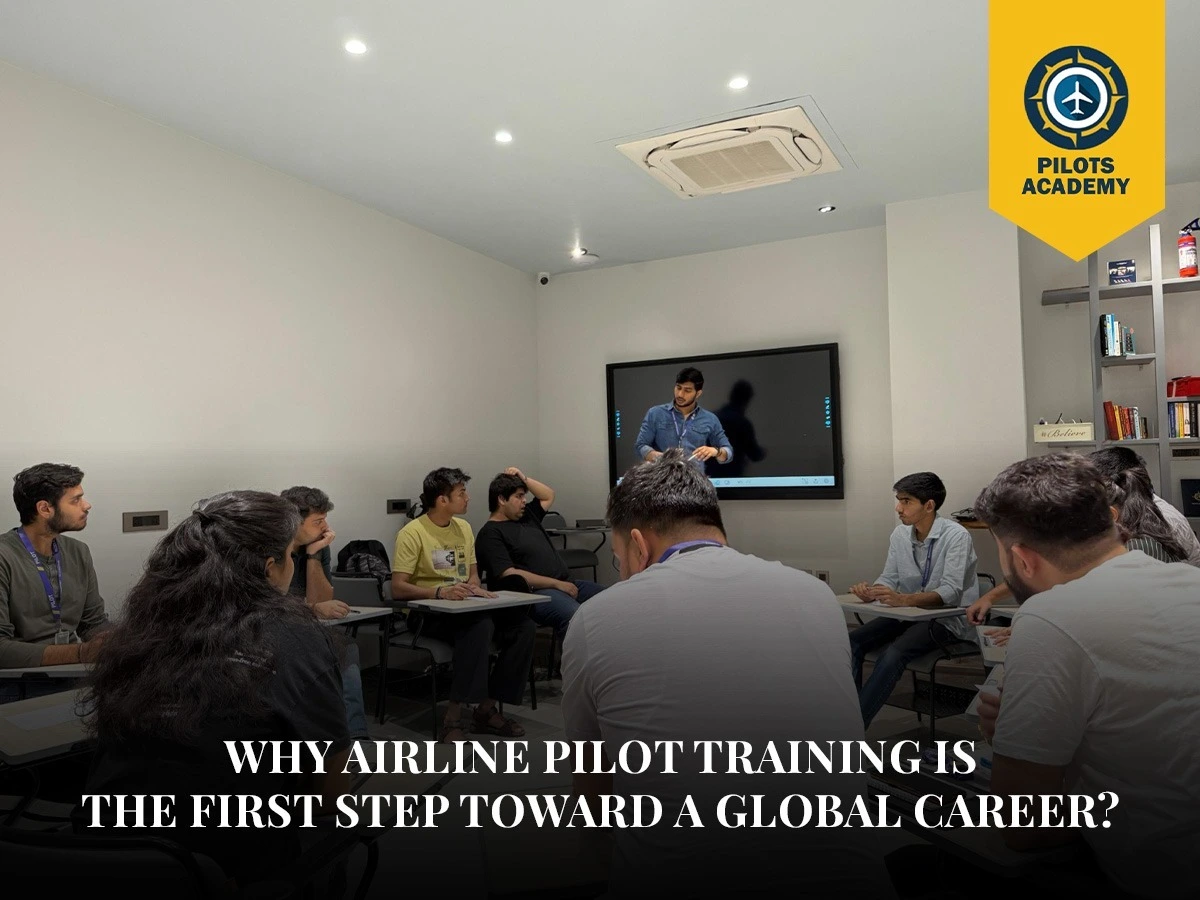Few professions capture the imagination quite like aviation. The dream of flying across continents, connecting people and places, and commanding an aircraft thousands of feet in the sky inspires countless individuals. But to transform that dream into reality, one must take the first step, which is enrolling in airline pilot training. This training builds key skills and unlocks a world of career opportunities and adventure.
Global Nature of Aviation
Unlike many other professions, aviation is inherently international. By flying across borders, airlines bring nations and cultures closer. When you undergo airline pilot training, you aren’t just preparing for a domestic career; you’re equipping yourself with skills and licenses that can be recognised worldwide. This global relevance makes training a powerful stepping stone for those who want to explore opportunities beyond their home country.
Modern aviation authorities follow international standards set by the International Civil Aviation Organisation (ICAO), ensuring consistency in regulations and safety protocols. As a result, the competencies you acquire during your airline preparation course can serve as your passport to the skies anywhere in the world.
Why Airline Pilot Training Matters?
Airline pilot training goes far beyond basic flying lessons. It is an advanced, comprehensive program designed to prepare you for the unique challenges of commercial aviation. From handling multi-engine aircraft to mastering instrument flight rules (IFR), the course builds your technical expertise while shaping your decision-making and leadership abilities.
During this journey, you’ll train in real-world scenarios, simulate emergencies, and practice long-haul navigation. A strong focus on safety, efficiency, and teamwork ensures you graduate as more than just a pilot—you become a professional aviator trusted to carry hundreds of passengers safely across borders.
Role of an Airline Preparation Course
Before diving directly into advanced flight training, many students enroll in an airline preparation course.
In an airline preparation course, you’ll study aviation regulations, advanced aerodynamics, meteorology, and airline procedures. These ground lessons sharpen your theoretical knowledge and ensure you’re ready for the challenges of airline pilot training.
Building Transferable Skills
A significant benefit of airline pilot training is the development of transferable skills that go beyond flying. Pilots are trained in leadership, teamwork, problem-solving, and stress management—all of which are highly valued across industries and cultures. These skills allow you to adapt quickly to different working environments.
Learning how to handle international air traffic control procedures or manage cross-cultural crew dynamics prepares you for working in diverse teams. Such abilities give you an edge not only as a pilot but also in leadership positions within global airlines.
Opportunities Around the World
One of the most exciting outcomes of completing airline pilot training is access to international job markets. Major airlines across Asia, Europe, the Middle East, and North America consistently seek skilled pilots to support their expanding fleets. With the worldwide demand for pilots growing, qualified individuals are finding career opportunities across continents.
Graduates of a strong airline preparation course are particularly attractive to airlines because they demonstrate a proactive approach to training. Having both preparation and advanced training under your belt showcases readiness, professionalism, and adaptability—qualities airlines seek when hiring for global operations.
Journey from Training to Cockpit
Aviation is a step-by-step journey. You begin with private pilot training, progress to commercial licenses, and finally embark on airline pilot training. This advanced phase prepares you for type ratings, multi-crew coordination, and the demanding schedules of airline life.
The airline preparation course often acts as a springboard into this journey. Covering foundational airline concepts, it ensures you are not overwhelmed by the intense pace of advanced training. Together, these programs form a seamless pathway from novice pilot to professional aviator ready for global opportunities.
Challenges Along the Way
Airline pilot training requires discipline, financial investment, and unwavering focus. Long study hours, challenging examinations, and rigorous simulator sessions can test your resilience. Yet, these challenges also mirror the real-world demands of airline operations, ensuring you are ready for the cockpit.
By strengthening your theoretical knowledge and familiarising you with airline procedures, it reduces the stress of advanced phases and builds your confidence as you step into the training aircraft.
Global Career Ahead
After completing airline pilot training, you get endless possibilities. You could be flying international routes for a major carrier, exploring new countries every week, or eventually advancing to captaincy. Some pilots choose to move into airline management, training, or even aviation consultancy, leveraging their global experience in new ways.
The skills you acquire during your airline preparation course also help in building a flexible career. Whether you work with regional airlines, cargo operators, or international flag carriers, the knowledge gained makes you adaptable and versatile across different segments of aviation.
Pilots Academy: Where Dreams Take Flight
Choosing the right institution is just as important as choosing the profession itself. This is where Pilots Academy makes all the difference.
Here’s how Pilots Academy benefits you:
- Comprehensive Programs: From ground school to simulator sessions, the academy offers a structured pathway that combines theoretical knowledge with hands-on expertise.
- Global Recognition: Training follows international standards, ensuring your credentials are valued across countries and airlines.
- Expert Faculty: Learn from experienced instructors who bring years of airline experience into the classroom and cockpit.
- Cutting-edge Facilities: Access modern simulators, training aircraft, and state-of-the-art resources that mirror real airline environments.
- Career Guidance: We mentor you toward securing airline jobs, preparing you for interviews, assessments, and type ratings.
Final Thoughts
A career as a professional pilot involves far more than just mastering an aircraft’s controls. It’s about building a career that can take you across the world. With airline pilot training, you develop not only flying expertise but also leadership, confidence, and the discipline every aviator needs.
The right training opens doors to a career that spans countries, cultures, and endless skies. At Pilots Academy, you’ll find the guidance, skills, and support to turn your dream of flying into an international reality.


